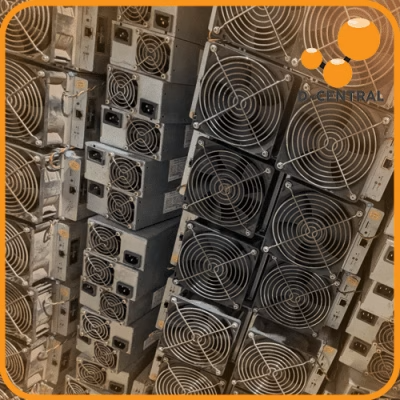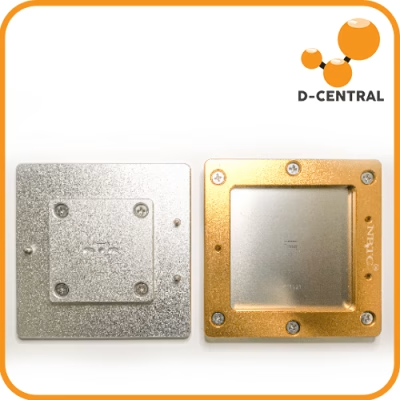Bitcoin, the pioneering cryptocurrency, has revolutionized the financial landscape since its inception in 2009. At the heart of Bitcoin’s robust and decentralized nature lies a process known as mining, a cornerstone that ensures the integrity, security, and continuity of the blockchain network. Mining involves validators, commonly referred to as miners, who use powerful computers to solve complex mathematical puzzles. The reward for this computational effort is twofold: miners are awarded new bitcoins, and they also process and secure transactions on the blockchain, maintaining the network’s trustless and decentralized ethos.
However, as Bitcoin’s popularity and value have soared, so too have the complexities and demands of mining. What began as a pursuit accessible to individual enthusiasts with modest computing power has transformed into a highly competitive arena dominated by specialized hardware and large-scale operations. This evolution has given rise to a critical discussion within the Bitcoin community and beyond: the threat of mining centralization.
Mining centralization refers to the concentration of mining power in the hands of a few large entities or pools, a development that could potentially undermine the decentralized principles upon which Bitcoin was built. Centralization poses several risks, including increased vulnerability to security breaches, potential manipulation of transaction processing, and the overarching fear that a centralized mining landscape could exert disproportionate influence over the entire Bitcoin network.
As we delve into this topic, it’s crucial to understand the nuances of mining centralization, its causes, implications, and the ongoing efforts to preserve the decentralized vision of Bitcoin. In this comprehensive exploration, we will unravel the layers of this complex issue, offering insights from industry leaders like D-Central Technologies, a vanguard in the Bitcoin mining industry, known for its commitment to decentralization and innovation.
Understanding Bitcoin Mining
Bitcoin mining is the lifeblood of the Bitcoin network, a critical process that involves validating transactions and adding them to the blockchain, Bitcoin’s public ledger. This process is carried out by miners, who use powerful computers to solve complex cryptographic puzzles. The first miner to solve the puzzle gets the opportunity to add a new block of transactions to the blockchain and is rewarded with newly minted bitcoins and transaction fees. This incentivization model not only secures the network but also introduces new bitcoins into circulation, adhering to a predefined issuance rate.
Evolution from Individual Miners to Industrial Scale Operations
In the early days of Bitcoin, mining was a relatively simple affair. Individuals could mine Bitcoin using standard personal computers. The low difficulty level of mining puzzles back then made this feasible, democratizing the process and embodying the decentralized ethos of Bitcoin. However, as Bitcoin gained popularity and its value increased, so did the difficulty of mining puzzles, necessitating more computational power.
This escalation led to the advent of Application-Specific Integrated Circuits (ASICs), hardware designed exclusively for Bitcoin mining. ASICs offered a significant leap in processing power and energy efficiency compared to general-purpose computers. The introduction of ASICs marked a turning point, transforming mining into a capital-intensive operation. Gradually, the landscape shifted from individual miners to large-scale mining farms, where companies deploy vast arrays of ASICs in data centers. These operations benefit from economies of scale, lower electricity costs, and enhanced processing power, but they also signify a move towards centralization.
The Role of Mining Pools in the Bitcoin Ecosystem
As individual miners found it increasingly difficult to compete with large-scale operations, mining pools emerged as a solution. A mining pool is a group of miners who combine their computational resources over a network to increase their chances of solving the mining puzzles and earning rewards. When a pool successfully mines a block, the reward is distributed among its members, proportional to the amount of computational power each contributed.
Mining pools play a crucial role in the Bitcoin ecosystem. They offer individual miners the ability to contribute to the mining process and earn rewards, albeit smaller, in a more predictable and steady manner. However, the existence of large pools has raised concerns about centralization. If a few pools grow too dominant, they could, in theory, control a significant portion of the network’s hash rate, the total computational power used to mine and process transactions. Such concentration of power could pose risks to the network’s security and its foundational principle of decentralization.
The Rise of Centralization in Bitcoin Mining
The trajectory of Bitcoin mining centralization is a tale of technological evolution and market forces. In Bitcoin’s infancy, the network’s egalitarian design allowed anyone with a computer to participate in mining. This period was characterized by a high degree of decentralization, aligning closely with the vision of Bitcoin’s anonymous creator, Satoshi Nakamoto. However, as the network grew and the reward for mining increased in value, the landscape began to shift.
The introduction of GPUs (Graphics Processing Units) marked the first significant leap in mining efficiency, followed by the advent of FPGAs (Field-Programmable Gate Arrays). These technological advancements increased the hash rate but also raised the entry barrier for individual miners. The real game-changer, however, was the development of ASICs, which dramatically outperformed previous technologies in both speed and energy efficiency. This shift led to the gradual obsolescence of less efficient mining setups and concentrated mining power in the hands of those who could invest in these advanced machines.
Current State of Mining Centralization
Today, Bitcoin mining is dominated by a handful of large mining pools and companies. According to recent statistics, the top five mining pools consistently control over 60% of the total network hash rate. This concentration of power raises concerns about the integrity and trustless nature of the Bitcoin network. If a single entity or a colluding group controls more than 50% of the network’s hash rate, they could potentially conduct a 51% attack, allowing them to double-spend coins and prevent certain transactions from being confirmed.
Key players in the current mining landscape include pools like BTC.com, Antpool, and F2Pool, along with mining companies such as Bitmain and MicroBT. These entities have established themselves as powerhouses in the mining world, often operating in regions with favorable conditions, such as low electricity costs and cooler climates.
Factors Contributing to Centralization
Several factors have contributed to the centralization of Bitcoin mining:
- Economies of Scale: Large-scale mining operations achieve significant cost efficiencies, allowing them to reinvest profits into further expansion and technological upgrades. This creates a compounding effect, where bigger players continue to grow at the expense of smaller miners.
- Access to Resources: Access to cheap electricity, efficient cooling systems, and advanced mining hardware is crucial for profitable mining operations. Regions with abundant and inexpensive energy resources, like parts of China, have become hotspots for large mining farms.
- Technological Advancements: The rapid pace of technological innovation in mining hardware has created a scenario where only those who can continuously invest in the latest equipment can stay competitive. This favors well-capitalized entities capable of making significant upfront investments.
The centralization of Bitcoin mining is a complex issue with far-reaching implications. In the following sections, we will explore the risks associated with this trend and the measures being taken to ensure the network remains secure, resilient, and true to its decentralized ethos.
Implications of Mining Centralization
Risks Associated with Centralization
The centralization of Bitcoin mining poses several significant risks to the network:
- Security Concerns: One of the primary risks is the potential for a 51% attack. If a single entity or a colluding group controls the majority of the network’s hash rate, they could manipulate the blockchain by reversing transactions or double-spending, undermining the trust and security that are foundational to Bitcoin.
- Market Manipulation: Centralized mining power could lead to market manipulation. Large mining pools or companies might influence Bitcoin’s price by choosing when to sell their mined bitcoins. This power could also extend to influencing protocol updates or changes, potentially skewing Bitcoin’s development in favor of their interests.
- Impact on Network Resilience: Centralization can make the network more vulnerable to disruptions. If a significant portion of the mining power is concentrated in a specific geographic area or within a few large pools, events like regulatory changes, power outages, or targeted attacks could have disproportionate impacts on the entire network.
The Debate on Decentralization
The centralization of Bitcoin mining has sparked a debate among industry experts, academics, and enthusiasts:
- Proponents of Decentralization argue that the core ethos of Bitcoin is its decentralized nature, which ensures no single entity can control or unduly influence the network. They advocate for measures to disperse mining power and maintain the democratic, trustless nature of Bitcoin.
- Contrasting Views: Some industry experts argue that concerns about centralization are overstated. They point out that the economic incentives of Bitcoin naturally prevent malicious behavior, as undermining the network would devalue their substantial investments. Additionally, they argue that centralization in mining does not equate to centralization in control, as the decentralized nature of Bitcoin’s protocol and user base still acts as a significant counterbalance.
Case Studies and Real-World Examples
Real-world incidents highlight the potential impacts of centralization:
- Geographic Concentration Risks: In 2021, China’s crackdown on Bitcoin mining, where a significant portion of the hash rate was concentrated, led to a massive drop in the global hash rate. This event underscored the risks associated with geographic centralization but also demonstrated the resilience of the network, as the hash rate eventually recovered with miners relocating to other countries.
- Pool Behavior: Instances where mining pools have neared the 50% threshold have raised alarms within the community, though no malicious actions were taken. These events have sparked discussions about the need for protocols or mechanisms to ensure a more balanced distribution of mining power.
The centralization of Bitcoin mining is a multifaceted issue with no easy solutions. It requires a delicate balance between the efficiencies of large-scale operations and the need to maintain a decentralized, secure, and resilient network. In the next sections, we will explore how companies like D-Central Technologies are addressing these challenges and contributing to a more decentralized mining landscape.
D-Central Technologies’ Perspective
D-Central Technologies, a trailblazer in the Bitcoin mining industry, is not just a participant but an innovator, constantly seeking solutions that align with the core principles of Bitcoin. One of our standout innovations is the Bitcoin Space Heater, crafted from refurbished ASICs. This ingenious solution transforms the byproduct of mining – heat – into a practical, everyday utility, thereby embodying the concept of dual-purpose mining. It’s an exemplary model of how mining activities can be integrated into daily life, making Bitcoin mining more accessible and appealing to a broader audience, including those who might be new to the concept.
Mining Hosting: Catering to the ‘Pleb Miners’
At D-Central Technologies, we believe in inclusivity in the Bitcoin mining ecosystem. Our mining hosting services are designed to cater to miners of all scales, including individual ‘pleb miners’ with as little as one ASIC. By offering hosting solutions that provide optimal mining conditions, we level the playing field, allowing small-scale miners to compete effectively. This approach not only supports decentralization but also strengthens the network by diversifying the hash rate distribution.
Dual-Purpose Mining: A Step Towards Greater Decentralization
Looking beyond traditional mining, D-Central Technologies is at the forefront of promoting dual-purpose mining initiatives. These initiatives include using excess heat from mining for practical applications like drying wood, heating greenhouses, and even in distilleries. Such innovative uses of mining byproducts showcase how Bitcoin mining can be integrated into various industries, adding value beyond cryptocurrency creation.
Methane Mitigation and Renewable Energy Integration
In our commitment to environmental sustainability and decentralization, D-Central Technologies is actively exploring methane mitigation strategies. By converting excess methane into CO2 and water, we not only address environmental concerns but also harness an additional energy source for Bitcoin mining. This approach aligns with our vision of integrating Bitcoin mining with renewable energy sources, further diversifying and decentralizing the mining process.
The Future of Mining: A Diverse and Decentralized Ecosystem
The future we envision at D-Central Technologies is one where Bitcoin mining serves multiple purposes and is accessible to a wide range of participants. From individual miners in their homes to large-scale operations utilizing renewable energy, our goal is to create a diverse and decentralized mining ecosystem. We believe that through innovations like the Bitcoin Space Heaters, hosting solutions for small-scale miners, and dual-purpose mining applications, we can contribute significantly to this vision.
Addressing the Centralization Concerns
The growing concern over the centralization of Bitcoin mining has led to the exploration of various strategies aimed at mitigating these risks:
- Diversifying Mining Locations: Geographic diversification of mining operations is crucial in reducing the risks associated with centralization. By spreading mining activities across different regions and countries, the Bitcoin network becomes less susceptible to regional disruptions, be they political, economic, or environmental.
- Promoting Smaller Mining Operations: Encouraging the participation of smaller miners is vital for a decentralized network. This can be achieved through initiatives like providing affordable and efficient mining hardware, offering educational resources, and creating community-driven mining pools that ensure fair reward distribution.
- Technological Innovations: Continuous innovation in mining technology can help level the playing field. This includes developing more energy-efficient mining rigs, exploring renewable energy sources for mining operations, and creating software solutions that optimize mining efficiency for smaller players.
The Role of Regulations and Community Initiatives
Regulatory frameworks and community-driven initiatives play a significant role in addressing the centralization of Bitcoin mining:
- Regulatory Impact: Governments and regulatory bodies can influence the mining landscape through policies and regulations. For instance, regulations that promote renewable energy use in mining operations can encourage the establishment of mining centers in regions with abundant renewable resources, aiding geographic diversification.
- Community Initiatives: The Bitcoin community, including developers, miners, and users, can initiate measures to counteract centralization. This includes supporting decentralized mining pools, advocating for transparent and fair mining practices, and developing open-source tools that assist small-scale miners.
Future Trends and Potential Shifts in the Mining Landscape
Looking ahead, several trends and potential shifts could influence the Bitcoin mining landscape:
- Decentralization Through Renewable Energy: As the world moves towards renewable energy, Bitcoin mining is likely to follow suit. Utilizing renewable energy sources can lead to more decentralized and environmentally sustainable mining operations.
- Technological Advancements: Continuous advancements in mining technology, such as the development of more efficient and less expensive ASICs, could make mining more accessible to a broader audience, supporting decentralization.
- Increased Institutional Involvement: The growing interest of institutional investors in Bitcoin could lead to more professionalized and regulated mining operations. While this could introduce new dynamics in the mining landscape, it also presents an opportunity to advocate for decentralization principles in these new institutional frameworks.
- Community-Driven Solutions: The Bitcoin community’s commitment to the network’s decentralized ethos is likely to spur further innovations and solutions to combat centralization. This could include new forms of mining pool governance, collaborative efforts to support small miners, and the development of decentralized mining technologies.
Addressing the centralization concerns in Bitcoin mining requires a multifaceted approach, involving technological innovations, regulatory and community efforts, and a forward-looking perspective on the evolving landscape of the industry. By embracing these strategies, the Bitcoin network can continue to thrive as a decentralized and secure system.
Conclusion
This article has delved into the intricate world of Bitcoin mining, exploring its evolution from a decentralized activity accessible to individuals to a more centralized operation dominated by large-scale miners and pools. We’ve examined the implications of this centralization, highlighting the potential risks to the network’s security, market manipulation concerns, and the impact on overall network resilience. The debate around decentralization has been illuminated, showcasing contrasting views from various industry experts and academics.
D-Central Technologies, as a leader in the Bitcoin mining industry, has provided valuable insights into these challenges. The company’s innovative solutions, such as Bitcoin Space Heaters and hosting services for small-scale miners, demonstrate a commitment to promoting a more decentralized and inclusive mining environment. These efforts are crucial in maintaining the democratic ethos of Bitcoin.
The centralization of Bitcoin mining is more than a technical issue; it’s a matter of preserving the foundational principles of Bitcoin. Ensuring a decentralized mining landscape is essential for maintaining the network’s integrity, security, and trustless nature. As the Bitcoin network continues to evolve, it is imperative that the community, industry leaders, and regulators work together to address these challenges, fostering an environment where the benefits of large-scale operations do not come at the expense of the network’s decentralized ethos.
For those interested in becoming a part of the solution, D-Central Technologies offers a range of services and products that cater to miners of all sizes. Whether you’re a seasoned miner or just starting, D-Central provides the tools, resources, and expertise to help you contribute to a more decentralized Bitcoin network. From ASIC repairs to hosting solutions, D-Central Technologies is your partner in navigating the Bitcoin mining landscape.
FAQ
What is Bitcoin mining?
Bitcoin mining is the process by which new bitcoins are entered into circulation and involves validating transactions and adding them to the blockchain ledger using powerful computers to solve complex mathematical puzzles.
How has Bitcoin mining evolved over time?
Bitcoin mining began as an activity accessible to enthusiasts with modest computing power but has evolved into a specialized, capital-intensive operation due to increased difficulty levels and the advent of Application-Specific Integrated Circuits (ASICs).
What are mining pools, and how do they contribute to the Bitcoin ecosystem?
Mining pools are groups of miners who combine their computational resources to increase their chances of earning rewards. They distribute rewards among their members proportionally to the contributed computational power and provide a way for individual miners to remain competitive.
What is the concern with the centralization of Bitcoin mining?
Centralization in mining poses risks such as increased vulnerability to security breaches, potential market manipulation, and undermining the decentralized principles of Bitcoin, with fears that centralized entities could exert influence over the network.
What factors contribute to the centralization of Bitcoin mining?
The centralization of mining is driven by factors like economies of scale, access to cheap electricity and resources, and the need for continuous investment in advancing mining technology.
What is D-Central Technologies’ approach to Bitcoin mining?
D-Central Technologies focuses on decentralization and innovation in Bitcoin mining, offering products like Bitcoin Space Heaters, hosting services for small-scale miners, and integrating mining with renewable energy and environmental sustainability practices.
How does D-Central Technologies support smaller mining operations?
D-Central Technologies offers mining hosting services designed to cater to miners of all scales, providing optimal conditions for mining and helping small-scale miners to compete effectively.
What are the future trends in the Bitcoin mining landscape?
Future trends include decentralization through the adoption of renewable energy sources in mining, advancements in mining technology making it more accessible, increased institutional involvement, and community-driven solutions to combat centralization.
How can individuals contribute to a more decentralized Bitcoin network?
Individuals can contribute by participating in smaller, community-driven mining pools, utilizing renewable energy for mining, and supporting initiatives aimed at maintaining a diverse and decentralized mining ecosystem.






